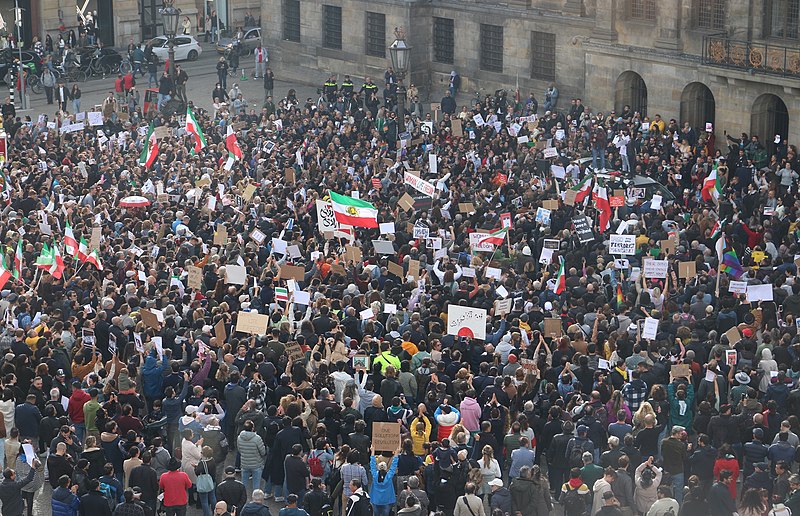The White House announced new sanctions against Iran Friday, marking one year since the death of Mahsa Amini while in police custody.
On September 16, 2022 the 22-year-old Amini died in custody three days after she was arrested by Iran’s morality police for not properly wearing a religious head covering called a hijab.
Amini’s death sparked mass protests across Iran that raised questions last year about the fate of the morality police. However, the regime appeared to have doubled down, putting journalists on trial for reporting Amini’s death and executing protesters by hanging.
The protests represented one of the largest challenges to Iran’s theocratic regime since the 1979 Islamic Revolution. Amid its crackdown, 500 people have been killed and more than 22,000 people have been detained. And while numbers are unclear, the Washington Post reports that more than 200 protesters were executed by the regime.
Among the new sanctions, the U.S. Treasury Department listed 29 people and organizations in connection with Amini’s death, including members of the Iranian government’s security forces, the head of Iran’s Prisons Organization and three regime-controlled media outlets, including Fars News, Tasnim News and Press TV.
The State Department, meanwhile, imposed visa restrictions on 13 Iranian officials and others for their involvement in unjust and inhumane acts against Iranian protesters.
Taken in coordination with other nations including the U.K., Canada and Australia, Friday’s round of U.S. sanctions are the 13th levied against Iran in response to its crackdown on protests.
In a statement Friday, President Biden said the U.S. “will continue to speak out against all forms of gender-based violence against women and girls everywhere, including women human rights defenders who are so often targeted for using their voices.”
He added that over the past year the U.S. has “organized an unprecedented diplomatic campaign that led to the Iranian government’s removal from the UN Commission on the Status of Women, and the creation of a UN fact-finding mission to investigate their human rights abuses” in the response to “calls from the Iranian people.”
His Administration further made it easier for Iranians to access the internet amid Tehran’s crackdown, Biden said, with some 30 million Iranians—nearly one in three—using U.S.-supported anti-censorship tools.
Earlier this week, the House of Representatives passed bills along bipartisan lines which would further impose sanctions on Iran’s supreme leader Ayatollah Ali Khamenei, President Ebrahim Raisi and others.


